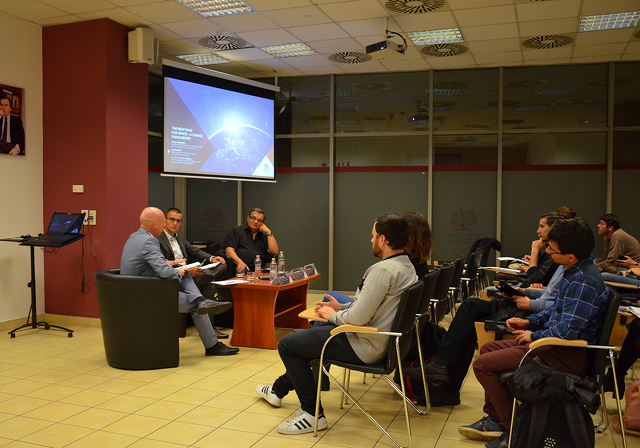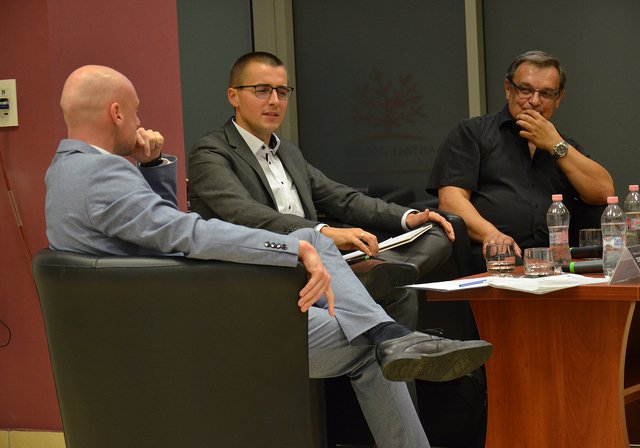On Tuesday 5 November 2019 the Antall József Knowledge Centre organized an event focusing on the major current developments in fields of scientific and commercial space exploration. The event entitled The new race for space – A chance for Europe? aimed to offer an insight into the European and global perspective of the rapidly changing dynamics of space industry.

Our guests included Tomas Hrozensky, resident research fellow, European Space Policy Institute and Tibor Pacher, team leader & CEO and founder at Puli Space Technologies, while the event was moderated by Zsolt Csepregi, Deputy Director for International Affairs at the Knowledge Centre. During the first segment of the discussion the speakers put into perspective the notion of space race itself, emphasizing the distinctive differences between the current situation and the one in the second part of the 20th century that was dominated by the highly political race between the United States and the Soviet Union. Tomas Hrozensky emphasized that currently there is a race at the private level as well, while there might also be a more dynamic competition in the near future. On the other hand, he added, the affordability of access to space is definitely a game changer for all parties involved. This affordability is partly created by the changes in the availability of data as well: it has become easy to create new businesses sometimes it is just enough to download a set of open-access data, do some research with it, thereby adding value to it, and then selling it. Tibor Pacher highlighted the fact that by now it has become both physically and technically cheaper to access space through new technologies and innovation, therefore possibilities are open to smaller stakeholders as well – basically we have reached the democratization of space. Nevertheless, there are some major players, such as the USA, Japan, India, Russia, China whose programs are representing the highest level at this time. On the other hand, there is also a set of ambitious countries (Brazil, South Africa, New Zealand, United Arab Emirates, South Korea, Australia) that aim to increase their capabilities.

Speaking about new challenges Tibor Pacher stressed the importance of new legal regulations, as the formerly unknown new possibilities also bring new questions that have to legally addressed. However, it is hard to create a common legal framework and EU regulation, as first states should achieve improvements in the existing legal environment. A regulated environment will be beneficial for all parties involved, as even small and medium-sized companies can do things in the space. Big and small companies both have an important role. The speaker stressed the importance of regulating space mining, which, for example in the case of the Moon, could be a great opportunity for European SMEs in the next five to ten years. While the EU is not lagging behind in the funding of space research it might be difficult to allocate further funding for it, as it might be difficult to explain to the voters why the EU invest so much money in something, which does not have directly noticeable benefits for the citizens – added Tomas Hrozensky. The speakers agreed that although the EU steps up collectively and not necessarily uniformly in the field of aerospace and space industry a deeper cooperation – among others for security policy reasons – would be definitely a preferable option. Speaking about the Central European region the experts underlined that small countries, like Hungary or Slovakia could formulate different recommendations; it is important to be trustworthy and reliable partner that fulfills its promised commitments on the long run under changing governments.

